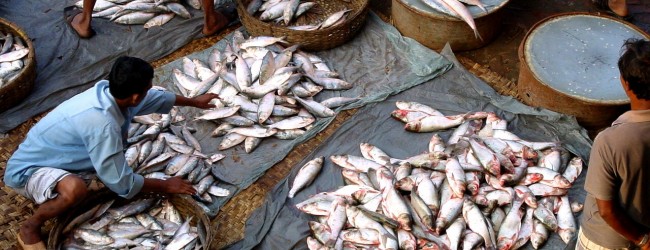
 [DHAKA] Government investment and support for innovation in existing rice-fish systems could benefit small-scale, resource-poor farmers in Bangladesh, says a new study by an international team of scientists.
[DHAKA] Government investment and support for innovation in existing rice-fish systems could benefit small-scale, resource-poor farmers in Bangladesh, says a new study by an international team of scientists.
“There is an immediate need for further research on issues such as improved technologies and practices for rice-fish systems, fish value chains, the distribution of economic value within those value chains, and the policy interventions that can encourage efficiency and equity,” says the study published last month (December) in Food Policy.
The findings of the study indicate that while innovation in rice-fish systems is being driven by households and communities, policymakers need to develop effective regulations to promote feed and fish quality and quantity, for example. More rigorous analyses of the intended and unintended impacts of these policies and investments are also necessary, the study says.
“What we are looking at is the economic viability of a combination of decades-old and new practices of rice-fish cultivation that are already endemic in many regions of the country,” A. B. M. Mafuzul Haque from the World Fish Center’s Bangladesh office and one of the authors of the study tells SciDev.Net.
According to Haque, previous research in Bangladesh dealt with location- and season-specific feasibility of rice or fish technologies rather than feasibility at a system level or across an entire agricultural year.
Public research organisations lay focus on improving concurrent rice-fish systems (growing fish in wet paddy) rather than farming systems that alternate rice and fish or collectively managed systems, although all of them offer potential for increasing productivity, the study says.
The study found several constraints to adopting rice-fish systems, such as limited or absent technologies for different types of rice-fish ecologies; quality fingerlings; post-harvest processing, storage, transport infrastructure; and climate variability.
Bangladesh’s national agricultural research system needs to step up applied research, particularly on alternating rice-fish systems, while researchers, extension agents and non-government organisations place priority on an integrated approach, the study says.
 While Bangladesh’s rice-fish production could be extended to cover three million hectares, the potential has not been fully realised due to insufficient attention given to the social, economic, and policy dimensions of improving rice-fish systems and improving food security.
While Bangladesh’s rice-fish production could be extended to cover three million hectares, the potential has not been fully realised due to insufficient attention given to the social, economic, and policy dimensions of improving rice-fish systems and improving food security.
The lead author of the study, Madan Dey, who teaches at the aquaculture and fisheries centre, University of Arkansas, tells SciDev.Net that a new approach could “combine traditional rice-fish culture with social engineering.”
Source: www.Scidev.net
You must be logged in to post a comment.